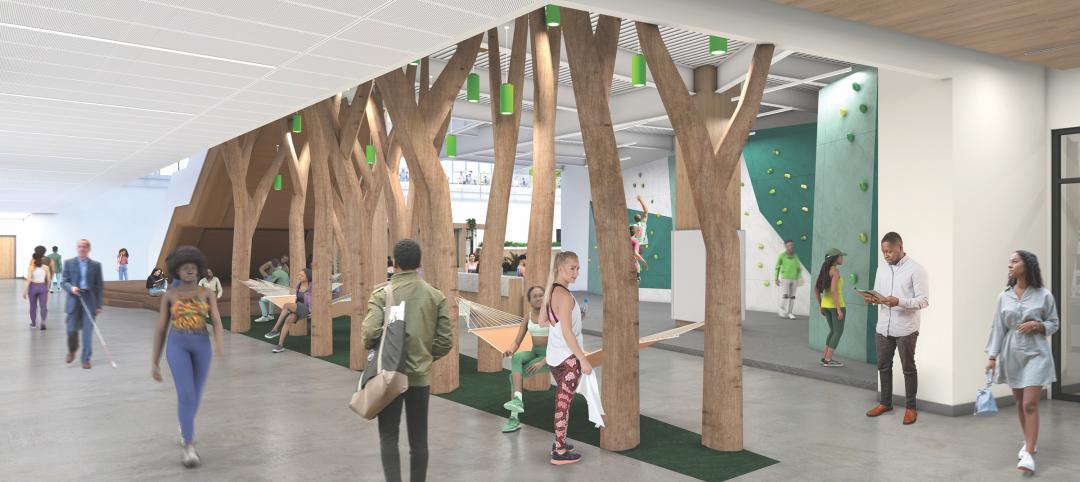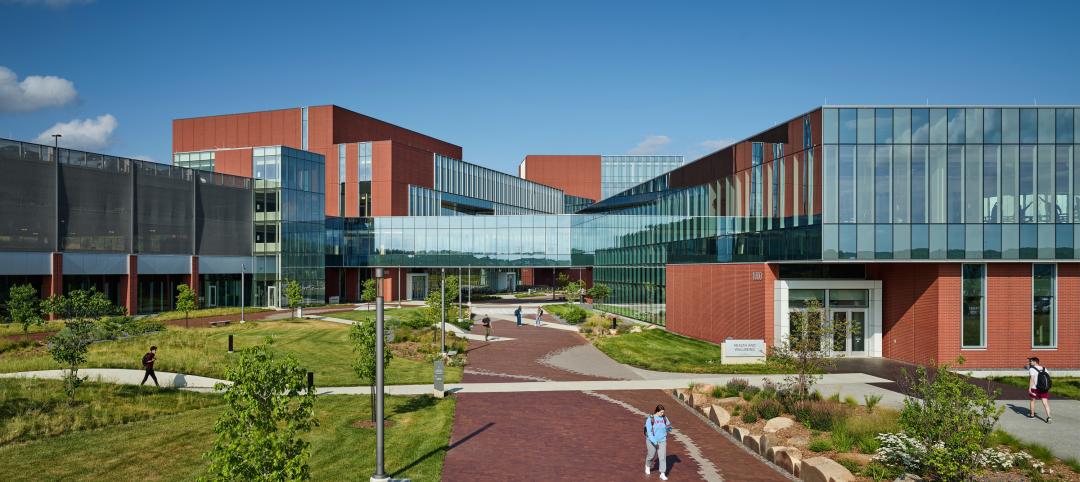Art Gensler, FAIA, FIIDA, RIBA, cofounder of Gensler, the world’s largest architecture firm, passed away Monday morning at his home in Mill Valley, Calif., at the age of 85.
The San Francisco Chronicle reported that Gensler had been battling lung disease over the last 18 months.
The firm was originally called M. Arthur Gensler Jr. and Associates, when Gensler, his wife Drucilla, and James Follett, a draftsperson, started the company in 1965. Gensler is widely credited with creating the blueprint for how professional service firms are organized and managed. He led Gensler until 2005, when the company’s Board of Directors introduced its current co-leadership management structure. He stepped down as chairman in 2010 though continued serving as an advisor to the firm for seven more years.
During his leadership tenure, Gensler saw the firm expand into a full-service practice whose interdisciplinary approach he helped craft. The firm that Art Gensler founded currently serves 28 practice areas from 50 offices around the globe. The company’s revenue hit $1.55 billion in 2020, continuing an upward trend that dated to 2010. Gensler is 100% owned by its 5,200 employees through direct shares and its ESOP plan.
In its 2020 annual report, Gensler stated that in 2019 alone its employees had worked on more than 7,000 projects representing over 1.5 billion sf of space. Its portfolio that year was designed to save over 16 million tons of CO2 emissions.
“Art’s lasting legacy is an ethos that only he could have created—a standard that allowed the firm to grow and prosper,” wrote Gensler’s co-CEOs Diane Hoskins, FAIA, NCARB, and Andy Cohen, FAIA, IIDA, in a remembrance they posted this evening. They added that Gensler championed an adaptive, proactive, and client-focused approach “that treated service as a privilege and clients as partners.”
ORIGINALLY FOCUSED ON OFFICE INTERIORS
Born in Brooklyn, N.Y., in 1935, Gensler earned a degree from Cornell University’s College of Architecture in 1958. Upon graduation, he worked for architecture firms in New York and Jamaica. He and his wife Drue migrated to California in the early 1960s, where Gensler worked for a few architectural firms, including Wurster, Bernardi, and Emmons. While at Wurster, he played a vanguard role establishing design standards for the Bay Area Rapid Transit system, then under construction.
When he opened his own shop, Gensler initially pioneered interiors for new office buildings. The firm started expanding domestically in the 1970s and 1980s, and then internationally in the ‘80s and ‘90s. (Among his accolades, Gensler was a professional member of the Royal Institute of British Architects.)
In 2015, he published Art’s Principles, which chronicled his 50 years in business and lessons learned. The book covers such topics as leadership, talent acquisitions and growth strategies.
Last January, Gensler made a $10 million gift to Cornell’s College of Architecture, Art, and Planning, whose program he helped create in 2006. As a result of that gift, the New York City location will be renamed the Gensler Family AAP NYC Center.
Gensler was predeceased by his wife, who died in 2017. He is survived by four sons and their families, 10 grandchildren and one great-granddaughter.
Related Stories
Construction Costs | Oct 16, 2024
Construction Crane Index: Most major markets’ crane counts increase or hold steady in third quarter
Rider Levett Bucknall’s (RLB’s) latest Crane Index and Quarterly Cost Report shows continued decreasing cost inflation and crane counts increasing or holding steady in 10 of the 14 major markets it surveyed. The national average increase in construction costs was 1.07%, the lowest it’s been in the last three years.
AEC Tech | Oct 16, 2024
How AI can augment the design visualization process
Blog author Tim Beecken, AIA, uses the design of an airport as a case-study for AI’s potential in design visualizations.
University Buildings | Oct 15, 2024
Recreation and wellness are bedfellows in new campus student centers
Student demands for amenities and services that address their emotional and mental wellbeing are impacting new development on college campuses that has led to recreation centers with wellness portfolios.
Higher Education | Oct 14, 2024
Higher education design for the first-gen college student
In this Design Collaborative blog, Yogen Solanki, Assoc. AIA, shares how architecture and design can help higher education institutions address some of the challenges faced by first-generation students.
Performing Arts Centers | Oct 10, 2024
Studio Gang's performing arts center for Hudson Valley Shakespeare breaks ground
A new permanent home for Hudson Valley Shakespeare, a professional non-profit theater company, recently broke ground in Garrison, N.Y. The Samuel H. Scripps Theater Center includes a 14,850 sf performance venue that will serve as a permanent home for the theater company known for its sweeping open-air productions of classics and new works.
Sustainable Design and Construction | Oct 10, 2024
Northglenn, a Denver suburb, opens a net zero, all-electric city hall with a mass timber structure
Northglenn, Colo., a Denver suburb, has opened the new Northglenn City Hall—a net zero, fully electric building with a mass timber structure. The 32,600-sf, $33.7 million building houses 60 city staffers. Designed by Anderson Mason Dale Architects, Northglenn City Hall is set to become the first municipal building in Colorado, and one of the first in the country, to achieve the Core certification: a green building rating system overseen by the International Living Future Institute.
3D Printing | Oct 9, 2024
3D-printed construction milestones take shape in Tennessee and Texas
Two notable 3D-printed projects mark milestones in the new construction technique of “printing” structures with specialized concrete. In Athens, Tennessee, Walmart hired Alquist 3D to build a 20-foot-high store expansion, one of the largest freestanding 3D-printed commercial concrete structures in the U.S. In Marfa, Texas, the world’s first 3D-printed hotel is under construction at an existing hotel and campground site.
University Buildings | Oct 9, 2024
Des Moines University Medicine and Health Sciences opens a new 88-acre campus
Des Moines University Medicine and Health Sciences has opened a new campus spanning 88 acres, over three times larger than its previous location. Designed by RDG Planning & Design and built by Turner Construction, the $260 million campus features technology-rich, flexible educational spaces that promote innovative teaching methods, expand research activity, and enhance clinical services. The campus includes four buildings connected with elevated pathways and totaling 382,000 sf.
Student Housing | Oct 9, 2024
University of Maryland begins work on $148 million graduate student housing development
The University of Maryland, in partnership with Campus Apartments and Mosaic Development Partners, has broken ground on a $148.75 million graduate student housing project on the university’s flagship College Park campus. The project will add 741 beds in 465 fully furnished apartments.
Healthcare Facilities | Oct 9, 2024
How healthcare operations inform design
Amanda Fisher, Communications Specialist, shares how BWBR's personalized approach and specialized experience can make a meaningful impact to healthcare facilities.

















